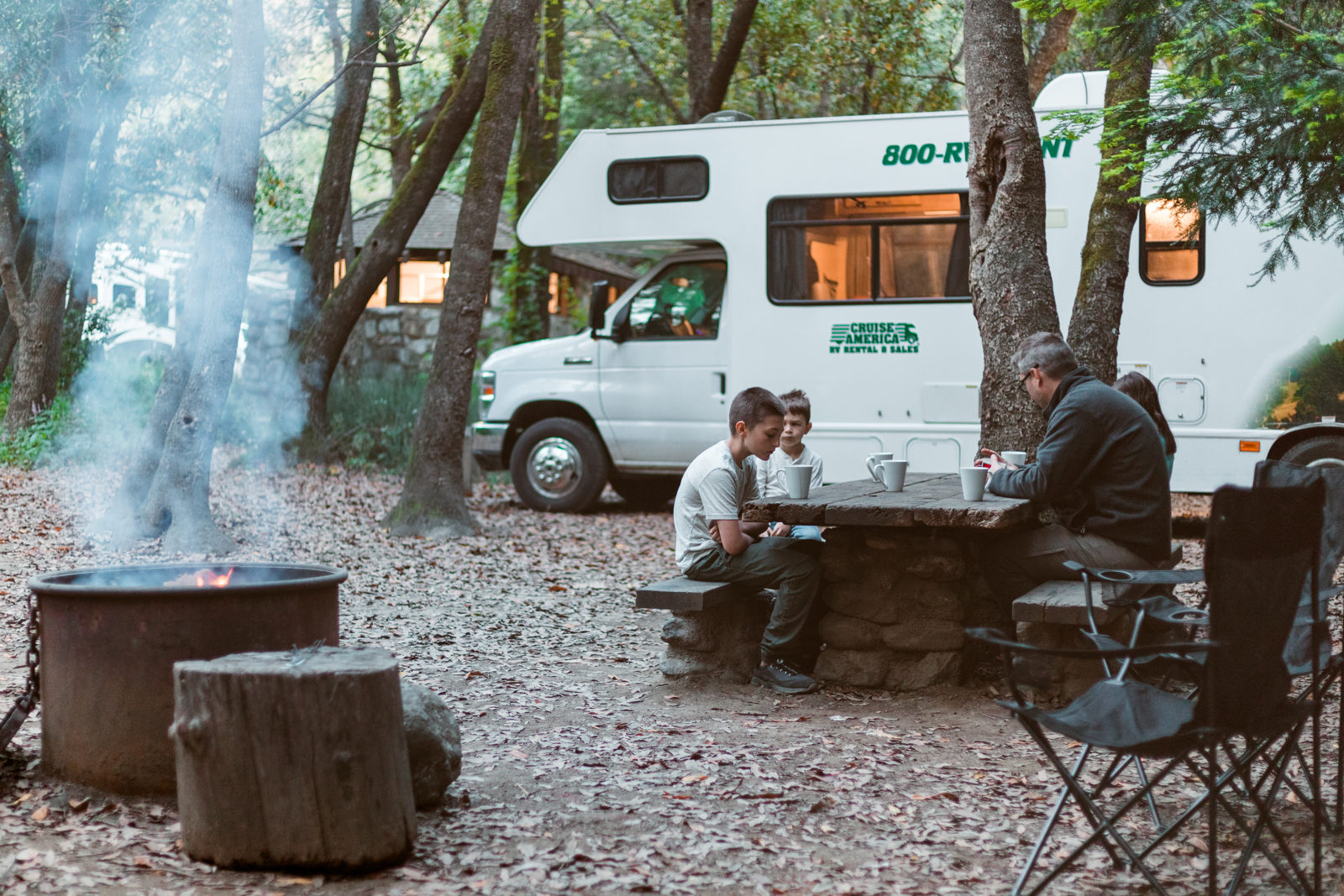
Top RV Parks Without 10-Year Rule
- RV Lifestyle
Imagine yourself on a cross-country road trip. You made site reservations weeks in advance, and you’ve driven hundreds of miles that day, only to arrive at the campground and be turned away.
You checked all the boxes when it comes to preparation, and there’s nothing wrong with your RV; why were you sent packing? The campground owner asked for your vehicle registration, and your RV is 15 years old. You’ve just run up against the 10-year rule.
What is this obscure and seemingly arbitrary regulation, and what can you do to ensure future road trips go off without a hitch?
What is the 10-Year Rule?
Many RV parks have a rule that limits access to RVs older than 10 years. This helps to maintain a certain level of quality and appearance within the park. The rule is infamous among RV travelers, especially with the growth of van life and refurbishing vintage vehicles.
The rule would appear to have the effect of locking out thousands of travelers, but in practice, the rule isn’t enforced all that often. Even so, the prospect of being denied entry after a long day on the road puts many RV travelers on edge. Fortunately, there are still plenty of RV parks that don’t even have the rule on the books.
Is the 10-Year Rule Even Legal?
Yes — RV parks that are privately owned can set whatever rules and regulations they choose so long as they don’t run afoul of state and federal anti-discrimination laws. Since an aging RV can be both an eyesore and a safety/environmental hazard, park owners are within their rights to prohibit vehicles older than 10 years.
Park owners also worry about recouping their costs after an eviction should a tenant stop paying after a few days or months. An older RV that isn’t roadworthy won’t be worth much at auction should the owner need to recoup their costs.
When is the 10-Year Rule Enforced?
Fortunately, in all but the most exclusive RV resorts, the 10-year rule serves as a guideline more than a hard limit. If a vehicle is leaking fluids, in desperate need of new paint, and has trim pieces precariously hanging from the door and windows, the park owner might invoke the 10-year rule.
However, travelers with older RVs that are kept clean and in good working order will rarely be asked to show their vehicle’s registration papers, even if it is 20+ years old. If you believe your RV is more “vintage” than “old,” send a few photos of your rig before booking the campsite.
Park owners also take a more relaxed position on the 10-year rule with travelers that are just passing through. An older RV that’s only around for a few nights won’t diminish the character of the neighborhood that way a summer resident with a dilapidated rig might.
Top RV Parks Without the 10-Year Rule
As a general rule, parks that are parks connected to a larger network or that are publicly owned are a good choice when looking for RV parks without the 10-year rule. Parks in the off-season or that are far from popular attractions are also a good bet. Here are some well-regarded RV parks that generally do not have such restrictions.
KOA Campgrounds
Kampgrounds of America is the world’s largest network of privately-owned campgrounds, and each campground franchisee creates its own regulations. Some include a 10-year rule, but a photo of your well-maintained RV is usually all that’s needed to get around it.
Unlike public campgrounds, there’s no limit to how long you stay at a KOA — though if you’re staying for more than a month, you’ll want to reserve a spot further in advance. Their parks typically have more amenities and better-maintained facilities, and they're in 47 states and 9 Canadian provinces. There’s almost certainly one close to your destination.
Jellystone Campgrounds
While not as well known as KOA, Jellystone has over 80 campgrounds spread across 30 states, making them one of the largest networks of RV parks without 10-year rules. While they’re less picky about your rig’s age, campground franchisees have to meet meticulous standards to maintain the Jellystone designation.
Thousand Trails
This membership-based camping network has dozens of campgrounds across the U.S. and twenty or so in Canada. They do not enforce an age limit but require that RVs be in “good working condition” and have no mechanical damage or plumbing issues.
Public Campgrounds
Private campgrounds can discriminate based only on the age of the vehicle. Sites run by the government, whether it be federal, state, or local, cannot. If you’re out West, where national parks, national forests, and BLM campgrounds are abundant, you’ll likely never run up against the 10-year rule. The downside is that most public campgrounds or boondocking sites have a short maximum stay, a few weeks at most.
Harvest Hosts
This sharing economy program pairs RV travelers with small business owners that have space on their property for boondocking: vineyards, farms, golf courses, and rural storefronts. Users pay a membership fee to Harvest Hosts and are expected to purchase $20 or more of their host’s product.
It’s a great opportunity to see unique and out-of-the-way places while also supporting local businesses. No information about your RV’s age or condition is exchanged, but travelers are expected to move on after one night.
Parks Not Catering to Snowbirds
While the 10-year rule is in the terms and conditions of many private campgrounds, enforcement is usually lax. Exceptions include parks in Arizona, Florida, and California catering to RV owners looking to escape harsh northern winters.
Snowbirds put down roots for months at a time and are more conscious of the park’s “character” that could be tainted by older, less well-maintained RVs. If the campground has a minimum stay requirement, take it as a red flag that the park is accustomed to seasonal residents, and the host will want to see your registration papers.
Finding the Right Campground with Cruise America
Most RV owners will not be turned away at a campground, and very few even have a 10-year rule on the books. However, while a campground might not have a 10-year rule listed, entry to the park is at the discretion of the owner/manager. Experienced travelers always check with individual RV parks or campgrounds to confirm their specific policies before making any reservations.
Want to embark on a big trip but aren’t sure your RV is up to the task? Cruise America has a wide selection of RVs available for rent or purchase. Our RVs are impeccably maintained, and you’ll never have a problem gaining entry to a campground in a Cruise America vehicle. Contact us today to see how we can make your next road trip a stress-free one.





